Overview of our speakers
Susanne Dehmel
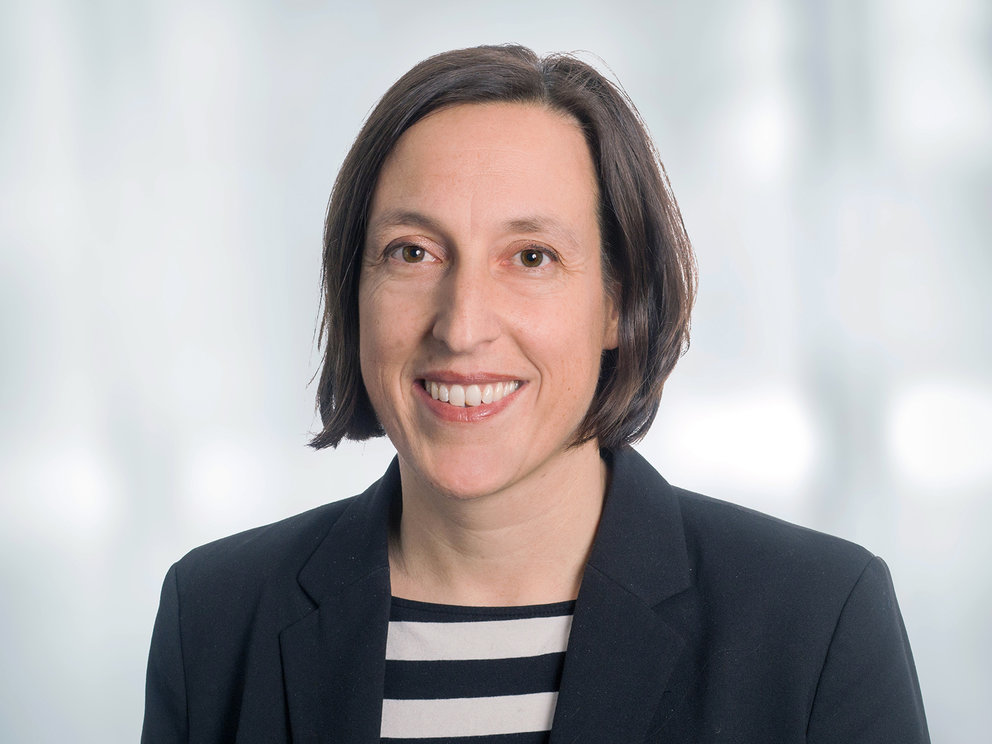
Executive Board Member of the digital association Bitkom | co-initiator of #SheTransformsIT
Talk on March 25, 2021
The link between digital participation, digital sovereignty and cybersecurity
About her (only german)
Susanne Dehmel ist seit Oktober 2014 Mitglied der Geschäftsleitung und verantwortet dort den Geschäftsbereich Recht & Sicherheit sowie das Thema Künstliche Intelligenz.
Sie ist Mitglied der Enquete-Kommission des deutschen Bundestages „Künstliche Intelligenz – Gesellschaftliche Verantwortung und wirtschaftliche, soziale und ökologische Potenziale“. Außerdem vertritt sie die Wirtschaft im Sachverständigenrat für Verbraucherfragen des Bundesministeriums der Justiz und für Verbraucherschutz und ist im Datenschutzbeirat der Deutschen Telekom AG. Für den Bitkom ist Susanne Dehmel außerdem als stellvertretende Vorsitzende des Vereins Selbstregulierung Informationswirtschaft e.V. (SRIW) sowie bei Deutschland sicher im Netz e.V. aktiv.
Susanne Dehmel ist Rechtsanwältin und absolvierte ihr Jura-Studium in Passau, Freiburg und Cardiff. Bevor sie beim Bitkom den Bereich Datenschutz übernahm, verantwortete sie von 2002-2009 die Bereiche Urheberrecht und gewerblicher Rechtsschutz. Bereits seit 2010 leitet sie den Bereich Datenschutz. Wichtiger Teil ihrer Arbeit ist die Förderung von Vertrauen und Sicherheit in der digitalen Welt und insbesondere die praxisgerechte Weiterentwicklung des Rechtsrahmens für die digitale Wirtschaft und Gesellschaft.
Angela Dorn
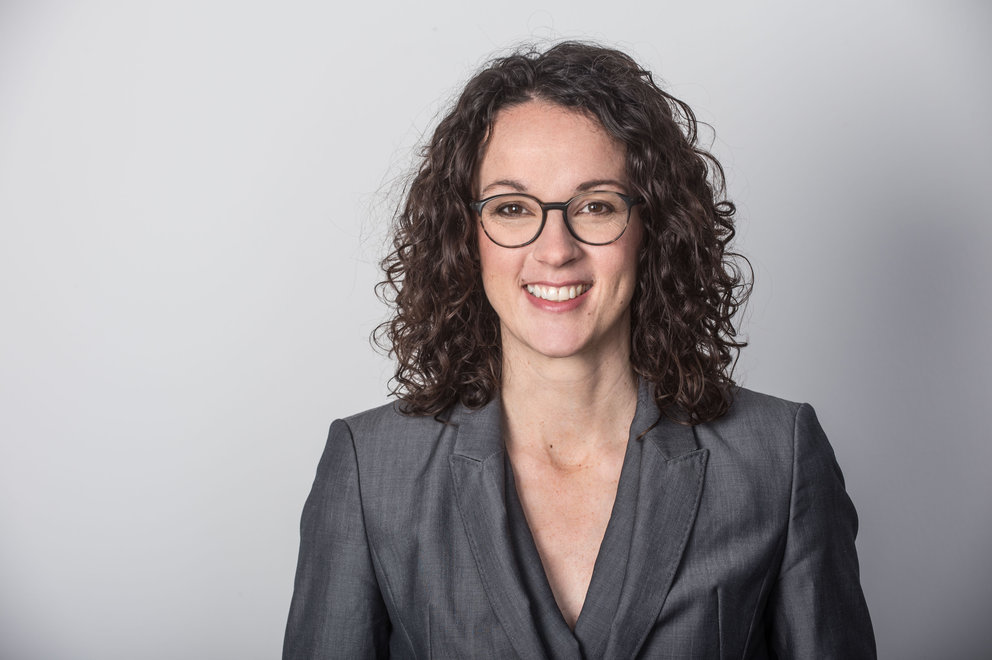
Patronage
About her (only german)
Angela Dorn ist seit Januar 2019 Hessische Staatsministerin für Wissenschaft und Kunst. Von 2014 - 2017 war die studierte Dipl.-Psychologin als parlamentarische Geschäftsführerin von BÜNDNIS 90/DIE GRÜNEN Hessen im hessischen Landtag vertreten, seit 2017 ist sie Landesvorsitzende ihrer Partei in Hessen. Angela Dorn ist verheiratet und hat drei Töchter.
Svea Eckert
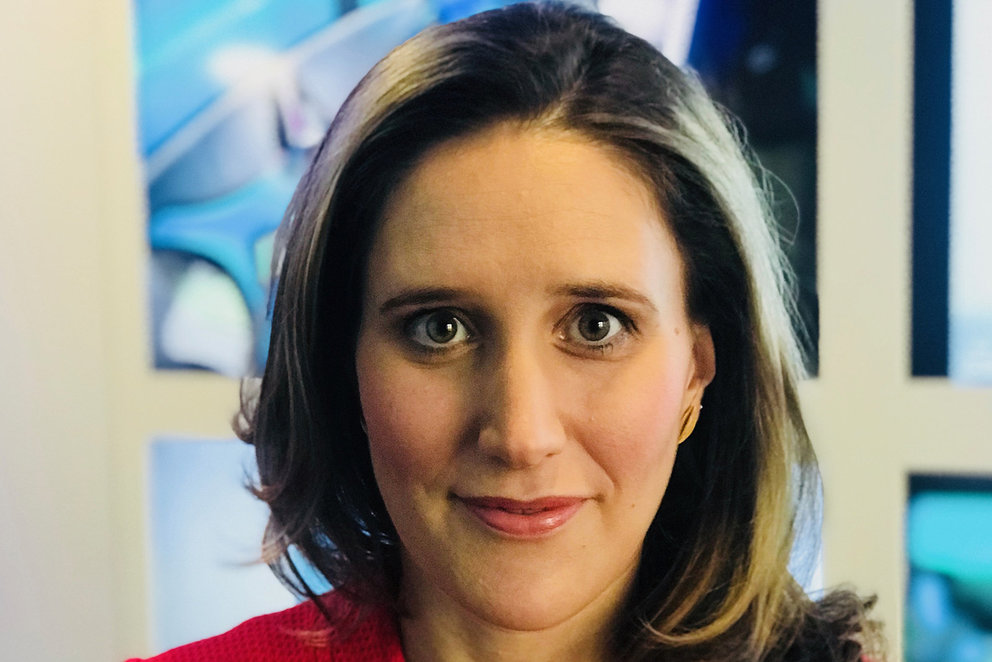
Talk in November 26, 2020
Dark Data – Learn about shadow industry which is surveilling your life
A judge with preferences for hard core porn, a police officer investigating a cyber-crime, a politician ordering burn out medication – this kind of very personal and private information is on the market. It is being sold to whoever is willing to pay for it.
In a long time experiment, with the help of social engineering techniques, investigative German journalist Svea Eckert and her colleagues were able to get their hands on the most private data you can find on the internet. So called “click stream data” of three million German citizens. This data contained every URL they have looked on, every second, every hour, every day for 31 days.
This data is collected worldwide from many big companies, whose legal purpose is to sell analytics and insights for marketers and businesses. In the shadow of Google and Facebook, companies have evolved, their names unknown to a broader public but making billions of dollars with your data.
In her talk Svea will give exclusive insights on how the research was conducted and how the tracking industry works. You will learn some simple social engineering techniques and how you the data can be de-anonymize with some simple techniques.
About her
Svea Eckert works as a freelance journalist for Germanys main public service broadcaster “Das Erste” (ARD). She is researching and reporting investigative issues for the prime time news shows and high quality documentaries. Her main focus lies on new technology: computer and network security, digital economics and data protection. She has won several journalism prices for her outstanding work, she is a co-hosts of the women in tech podcast “She likes tech” and a regular speaker on hacker conferences, like Defcon and CCC.
Hila Engelhard

Embassy of Israel in Germany
Participant in panel discussion on October 29, 2020
About her
Mrs. Hila Engelhard is a career diplomat serving as Minister-Counsellor, Head of the department for Economic & Scientific Affairs at the Embassy of Israel in Germany. In the past Mrs. Engelhard has served Israel as a diplomat abroad, as well as working in the headquarters in Jerusalem, including positions such as: Director of the Ministry of Foreign Affairs Cadet course (the training course for young diplomats), Desk officer for Economic and Trade Relations with the Middle East, Desk officer for Central and West Africa, Head of Bureau at the Office of the President of Israel and Spokesperson and Director of Public Diplomacy in Israel's Embassy to Mexico.
Hila holds a Masters in Public Administration (MPA) degree from Harvard's Kennedy School of Government as a Wexner Fellow and a BA from the Hebrew University of Jerusalem, as part of the Amirim program in humanities.
Aside from Diplomacy, Hila takes interest in people and their development, and plays with educational and coaching methods related to leadership and change. This additional to a passion for nature and the outdoors and a deep connection to the practice of Yoga. She is married and a mother of three.
Eugene Kaspersky

CEO, Kaspersky
Talk on November 12, 2020
International cooperation, transparency, and a change in mindset towards "security by design"
Kaspersky recognizes the borderless nature of cybercrime and shares its expertise, knowledge and technical findings with the world's security community on a constant basis. As a global cybersecurity company Kaspersky collaborates with global IT and OT vendors, international organizations, including INTERPOL and Europol, national and regional regulators and law enforcement agencies, as well as other cybersecurity research teams and individual experts all over the world in the fight against cybercriminals. One current example: Kaspersky's Industrial Systems Emergency Response Team (ICS CERT) https://ics-cert.kaspersky.com/ has officially joined FIRST https://www.first.org/ - the global Forum of Incident Response and Security Teams - the leading international technical group of 540 government and private accredited CERTs (Computer Security Incident Response Teams). In Germany, more than 30 CERT's are FIRST members https://www.first.org/members/map#country%3ADE, e.g. CERT BUND or CERTBw.
About him
Eugene Kaspersky is a world-renowned cybersecurity expert and successful entrepreneur. He is a co-founder and the Chief Executive Officer of Kaspersky, the world’s largest privately-held vendor of endpoint protection and cybersecurity solutions.
Eugene began his career in cybersecurity accidentally when his computer became infected with the ‘Cascade’ virus in 1989. Eugene’s specialized education in cryptography helped him analyze the encrypted virus, understand its behavior, and then develop a removal tool for it. After successfully removing the virus, Eugene’s curiosity and passion for computer technology drove him to start analyzing more malicious programs and developing disinfection modules for them. This exotic collection of antivirus modules would eventually become the foundation for Kaspersky’s antivirus database. In 1997 Kaspersky was founded, with Eugene heading the company’s antivirus research. In 2007 he was named Kaspersky’s CEO.
Today Kaspersky is one of the fastest growing IT security vendors worldwide, operating in almost 200 countries and territories worldwide. The company operates in 200 countries and territories and has 34 offices in 30 countries. Over 4,000 highly-qualified specialists work for Kaspersky, and its cybersecurity technologies protect over 400 million users worldwide.
Andreas Koenen
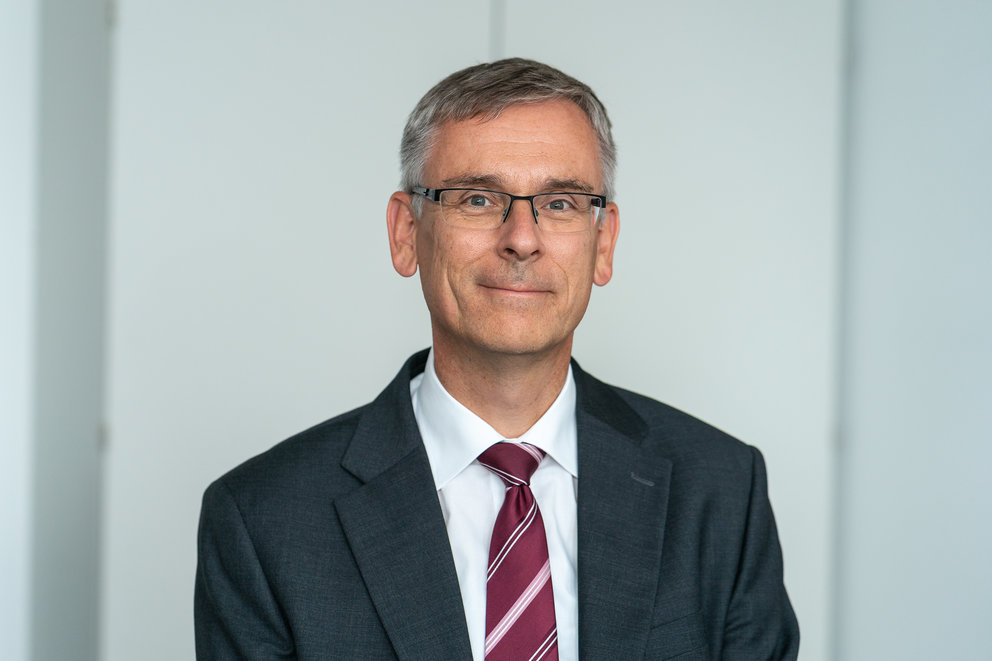
Head of Department CI "Cyber and IT Security" at the Federal Ministry of the Interior, Building and Community
Talk on March 25, 2021
No Digital Sovereignty without Cybersecurity
About him
Andreas Könen is the Director General CI Cyber and Information security. Previously he was the
Head of Directorate IT II IT and cyber security; secure information technology and ÖS III Cyber
security in the field of law enforcement and domestic intelligence by the German Federal Ministry of
the interior. Before it he was the Vice President of the German “Federal Office for Information
Security (BSI)”. Mr. Könen, a graduate mathematician, joined the BSI in 2006, taking on the post as the
head of the executive staff of the BSI Director General. In 2009 he became the head of the division
“Security in Applications and Critical Infrastructures” and subsequently head of the department
“Security Consulting and Coordination”. P rior to BSI, Mr Könen held various positions in the field of
information technology within the German Federal Administration, including executive functions.
Kris Lovejoy
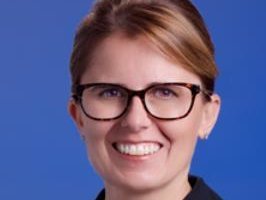
Ernst & Young
Talk on November 12, 2020
The influence of techno-nationalism on the cyber field
About her
Kris leads EY’s Global Cybersecurity practice in Advisory. Kris has over 20 years of experience serving large, diversified organizations implementing managed and professional security services. She is leading EY’s work with clients in corporate security and risk management. In previous roles, Kris was responsible for development and delivery of managed professional security services and for managing, monitoring and testing corporate resiliency functions globally at a global information technology company.
Kris is a recognized expert in the field on security, risk, compliance and governance with appearances at RSA, InfoSec, InterOp, CyberTech, the International Association of Privacy Professionals (IAPP), SecTor, and Hack-in-the-Box as well as appearances in Fortune, the Christian Science Monitor, and USA Today. Within the past few years,
she has been recognized by Washington Business Journal as a Top 25 Woman in Business, EWF as Entrepreneur of the Year, SC Magazine as one of Top 5 Managers in the Security Industry (Reboot 25 quarter century retrospective) and Top Woman in Security, as CSO Compass award in reflection of demonstrated excellence, achievement and leadership in the security field, as a Top 25 CTO by InfoWorld, Top 25 Most Influential Security Executive by Security Magazine, and as Top Woman in Security by eWeek. Kris holds U.S. and EU patents for Object Oriented Risk Management Models and Methods. In December 2020, Kris was named Top 25 Cybersecurity IT Executives Of 2020 by The IT Services Report.
Prof. Dr.-Ing. Mira Mezini
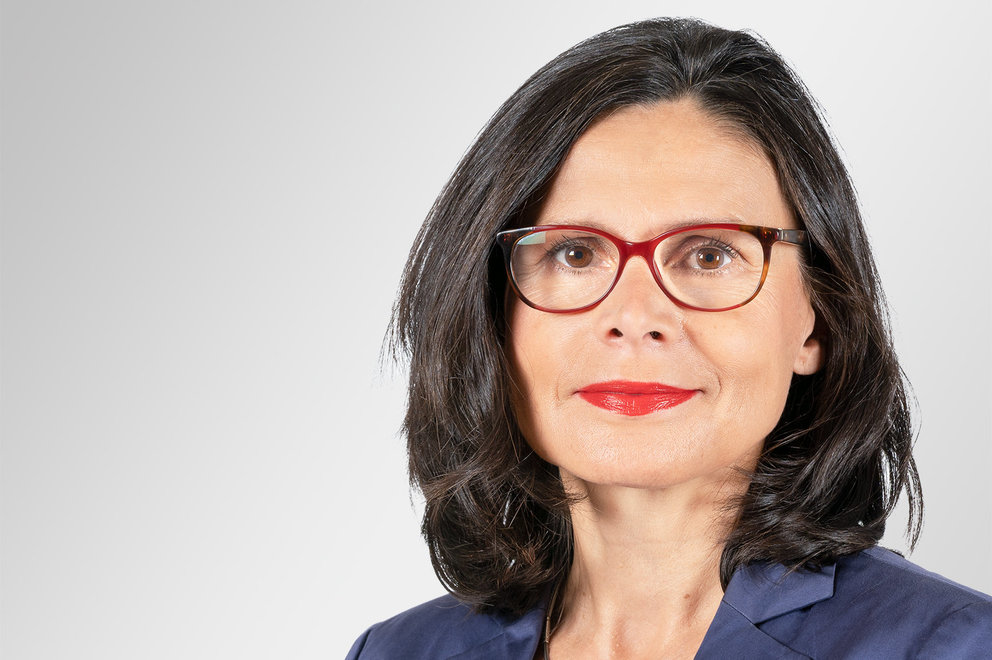
Co-Chair
Talk on October 29, 2020
Hidden in Plain Sight: Obfuscated Strings Threatening Your Privacy and Security
About her
Mira Mezini is Professor of Computer Science at the Technical University of Darmstadt, where she heads the Department of Software Technology. She is the TU Darmstadt representative on the Board of the National Centre for Applied Cybersecurity ATHENE and a member of the Quadriga of the Nationaler Pakt Cybersicherheit. Mira is (co-)author of more than 180 articles in internationally highly regarded journals and proceedings in software engineering and cybersecurity. She has been awarded several prestigious scientific prizes, including the German Security Prize and several research awards from e.g. IBM, Oracle and Google. In 2012, she received an Advanced Grant from the European Research Council - the most prestigious and highest endowed scientific funding in the EU. She is also a member of the German Academy of Science and Engineering (acatech).
Prof. Dr. Haya Shulman

Konferenzleitung | Moderation
About her
Haya Shulman is Professor in the Department of Computer Science at Goethe University Frankfurt, Head of the Cybersecurity and Analytics Department at the Fraunhofer Institute for Secure Information Technology SIT in Darmstadt and Scientific Director of the Fraunhofer Project Center for Cybersecurity at the Hebrew University of Jerusalem in Israel. She is also the initiator and director of the German-Israeli Partnership Accelerator Programme in Darmstadt and Jerusalem. Prof. Shulman received her PhD in computer science from Bar-Ilan University in Israel in 2014. Her research focuses on the applied aspects of cybersecurity, identifying vulnerabilities in networks and critical infrastructure and developing practical and effective countermeasures. Prof. Shulman was awarded with the 1st place in the 8th German IT Security Prize and has also received various awards for her work, e.g. the IETF/IRTF Research Award for Applied Networks. She frequently publishes and speaks at international conferences and teaches on various topics of applied cyber security at TU Darmstadt and as a visiting professor at the Hebrew University of Jerusalem.
Dr. Radia Perlman
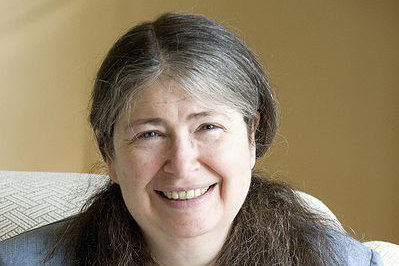
DELL/EMC
Vortrag am 26. November 2020
How to built an insecure system using good cryptography
Cryptographers focus on provably secure algorithms. Standards bodies focus on message formats. But what gets neglected are various system issues that are too „obvious“ to get publishable papers. This talk will give a variety of examples of deployed systems that even today have serious security issues. One u nacceptable solution is „blame the user“.
About her
Radia Perlman is a Fellow at Dell Technologies. Her work shaped much of how computer networks work today. Her innovations in routing protocol design made network routing more robust, more scalable, and more easily and safely configurable. Her spanning tree-based bridging innovation changed Ethernet from a technology where a few hundred computers shared bandwidth on a single wire, to what is known as “Ethernet” today, which supports fairly large networks on complex topologies. Her thesis went beyond network self-stabilization to the design of networks resilient despite malicious switches. She is the author of the textbook "Interconnections" and coauthor of "Network Security: Private Communication in a Public World". She has been recognized with many industry awards including induction into the National Academy of Engineering, the Inventor Hall of Fame, the Internet Hall of Fame, and lifetime achievement awards from ACM and Usenix. She holds BA, MS and PhD degrees from MIT.
Prof. Dr. Sabine Radomski
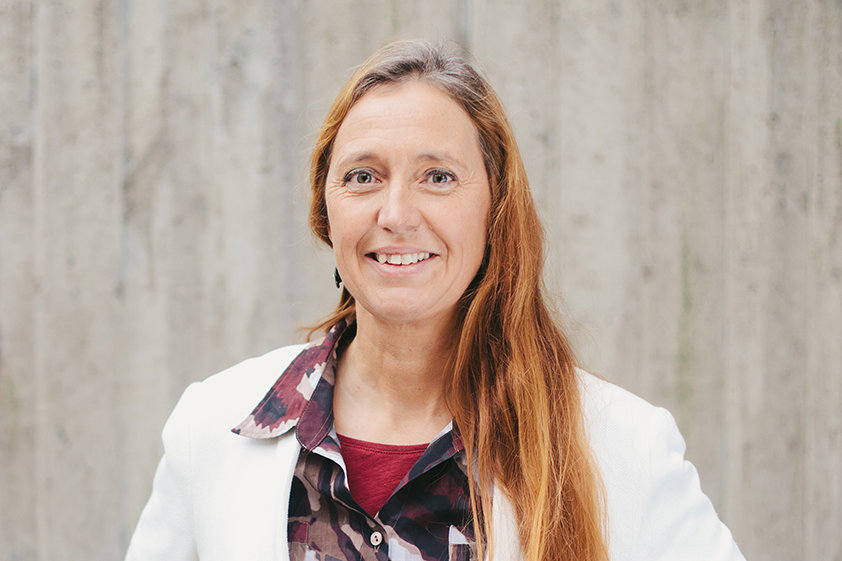
HfT Leipzig
Talk on November 12, 2020
Beauty is our business
About her (only german)
Prof. Sabine Radomski ist verheiratet und hat zwei Töchter, sie studierte von 1984 - 1988 Informationsverarbeitung an der Ingenieurhochschule Dresden und promovierte 1995 an der TU Dresden im Informatik Zentrum. Von 1992 bis 1993 arbeitete sie am Institut Softwaretechnik II der TU Dresden. Von 1994 bis 1999 war sie als Systemadministratorin in verschiedenen Firmen, u.a. dem Regierungspräsidium Dresden tätig. 1999 war sie wissenschaftlicher Mitarbeiterin im Institut Bauinformatik der TU Dresden. Seit 2000 ist sie Professorin im Fachbereich Nachrichtentechnik der Hochschule für Telekommunikation Leipzig. Ihr Lehrangebot umfasst die Veranstaltungen in Bachelor- und Masterstudiengängen: Verteilte Systeme, Software Engineering, Software Management sowie Netzwerkmanagement. Prof. Radomski besitzt eine Reihe von internationalen Kontakten im europäischen Raum. Sie ist BITKOM-Expertin im AK Cloud Computing und Outsourcing (CCO) sowie Qualitätsmanagement und wurde als MINT-Botschafterin 2012 und als Professorin des Jahres 2015 von der Zeitschrift Unicum ausgezeichnet. Ihre Forschungsthemen sind Software Qualität, IT Sicherheit und Cloud Computing.
Dr. Armgard von Reden

Chairperson of WIIS.de, Women in International Security Deutschland
Talk on October 29, 2020
Diversity by IT-Design
About her (only german)
Dr. Armgard von Reden ist Vorsitzende des Vorstandes von WIIS.de, der deutschen Sektion von Women in International Security, und Datenschutzberaterin in Berlin. Sie war bis Ende 2011 als IBM-Direktorin Cheflobbyistin für Deutschland, Russland und die CIS Staaten. Zu ihrem Bereich gehörten die technische Unternehmensvertretung in Europa und die Verbands- und Universitätsbeziehungen. Ferner war sie zehn Jahre lang Chief Privacy Officer der IBM Europa, Mittlerer Osten und Afrika. In früheren Positionen arbeitete sie an IT- und Datenschutzthemen im IBM Government Programs Büro in Brüssel und war für Public Affairs in Mittel- und Ost-Europa, dem Mittleren Osten und Afrika zuständig. Von Anfang 1992 bis Ende 1994 war Dr. von Reden die Chefredenschreiberin und Leiterin des Kommunikationsreferates der Bundestagspräsidentin Rita Süßmuth im Deutschen Bundestag. Dr. von Reden hat ferner ein Jahr im US-Kongress als legislative Assistant eines Kongressabgeordenten und Senators und als freie Journalistin für den London Economist in Washington D.C. gearbeitet. Sie unterrichtete an der Georgetown Universität in Washington D.C., den Universitäten in Stuttgart, Bonn, Göttingen, Berlin und hatte die Gastprofessur an der Fakultät für Elektrotechnik und Informatik der Uni Hannover zu Datenschutz, internationalem und interkulturellem Management.
Prof. Dr. Ina Schieferdecker
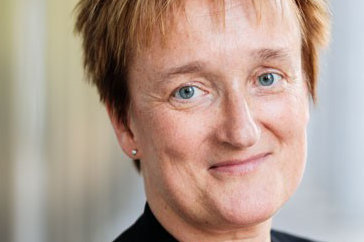
Ministerial Director at the Federal Ministry of Education and Research
Talk on October 29, 2020
Technologische Souveränität und IT-Sicherheit – Initiativen des BMBF
About her (only german)
Prof. Dr.-Ing. Ina Schieferdecker leitet seit dem 01.10.2019 die Abteilung Forschung für Innovation und Digitalisierung beim BMBF. Zuvor war sie Institutsleiterin des Fraunhofer-Instituts für Offene Kommunikationssysteme (FOKUS), Professorin an der Technischen Universität Berlin zum Quality Engineering von Offenen Verteilten Systemen und Direktorin des Weizenbaum-Instituts für die Vernetzte Gesellschaft, dem Deutschen Internet-Institut.
Sie ist Mitglied der Akademie der Technikwissenschaften (acatech). Sie war u. a. Mitglied des Wissenschaftlichen Beirats der Bundesregierung Globale Umweltveränderungen (WBGU), des Hightech-Forums 2025 (HTF), der Wissenschaftsplattform Nachhaltigkeit 2030 und wissenschaftlich-technische Vorständin der Technologiestiftung Berlin (TSB).
Für ihre wissenschaftlichen Arbeiten hat sie vielfach Auszeichnungen wie den EUREKA Innovation Award oder den Preis für junge Hochschullehrer der Alfried Krupp von Bohlen und Halbach-Stiftung erhalten.
Ina Schieferdecker wurde am 18. März 1967 in Berlin geboren und studierte Mathematische Informatik an der Humboldt-Universität Berlin. Ihre Promotion legte sie 1994 an der Technischen Universität Berlin ab.
